
Chief Sunday Adeyemo, widely known as Sunday Igboho has submitted a petition to the British government today, appealing for support in the quest for an independent Yoruba nation. The petition was delivered to No. 10 Downing Street, where Prime Minister Keir Starmer’s government is urged to take action regarding the aspirations of the Yoruba ethnic group in Nigeria.
The petition, presented on behalf of Professor Adebanji Akintoye, a prominent leader in the Yoruba Nation movement, centers on the ongoing agitation for self-determination by the Yoruba people. Accompanied by notable figures, including Prophet Ologunoluwa, Fatai Ogunribido, Alhaja Adeyeye, and Paul Odebiyi—representatives of various Yoruba organizations—Igbhoho’s visit marks a strategic escalation in the movement’s campaign for international recognition and support.
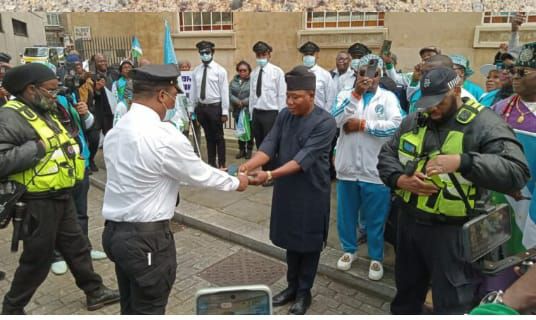
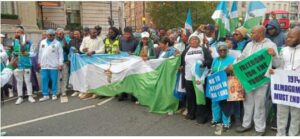
According to insiders, the confidential document emphasizes the urgent need for international intervention, citing a pattern of neglect and discrimination against the Yoruba people by the Nigerian government. “The Nigerian authorities have continuously ignored the rights and interests of the Yoruba Nation,” said a source familiar with the movement’s objectives. “We are calling on the international community, especially the UK government, to recognize our plight and lend their support for our call for self-determination.”
The submission of the petition comes on the heels of declarations by Yoruba historian Banji Akintoye, who has accused the Nigerian government of lobbying for Igboho to withdraw from the independence movement. This latest move is seen as a countermeasure to the government’s alleged efforts to undermine the agitation.
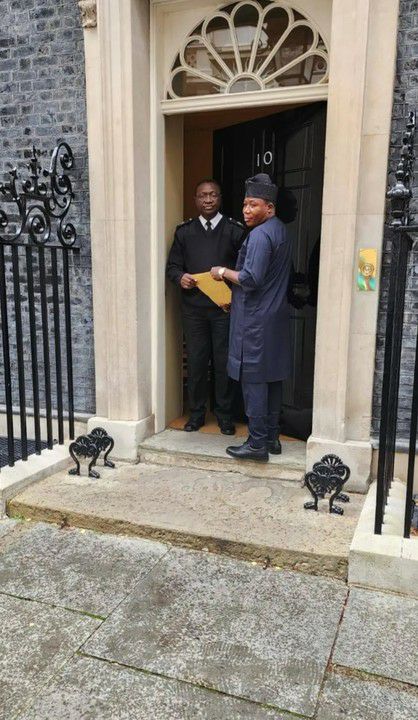
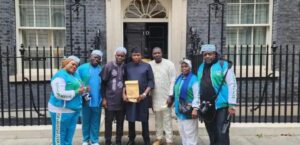
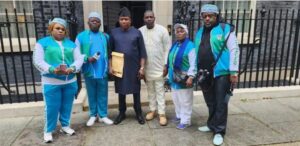
The petition outlines several key demands, including:
1. Recognition of the Yoruba Nation’s right to self-determination.
2. Immediate cessation of alleged human rights abuses against the Yoruba people.
3. Support for the establishment of an independent Yoruba state.
As the Yoruba Nation’s struggle gains momentum on the international stage, observers are keenly awaiting the Nigerian government’s official response to Igboho’s petition. Reactions are anticipated to be strong, potentially heightening existing tensions between the government and Yoruba nationalists.
The quest for Yoruba independence not only holds significance for the ethnic group but may also resonate throughout Africa, inspiring similar movements in pursuit of self-determination. International bodies and governments are closely watching the evolving situation, assessing the potential ramifications of their support or opposition to the Yoruba Nation’s demands.











